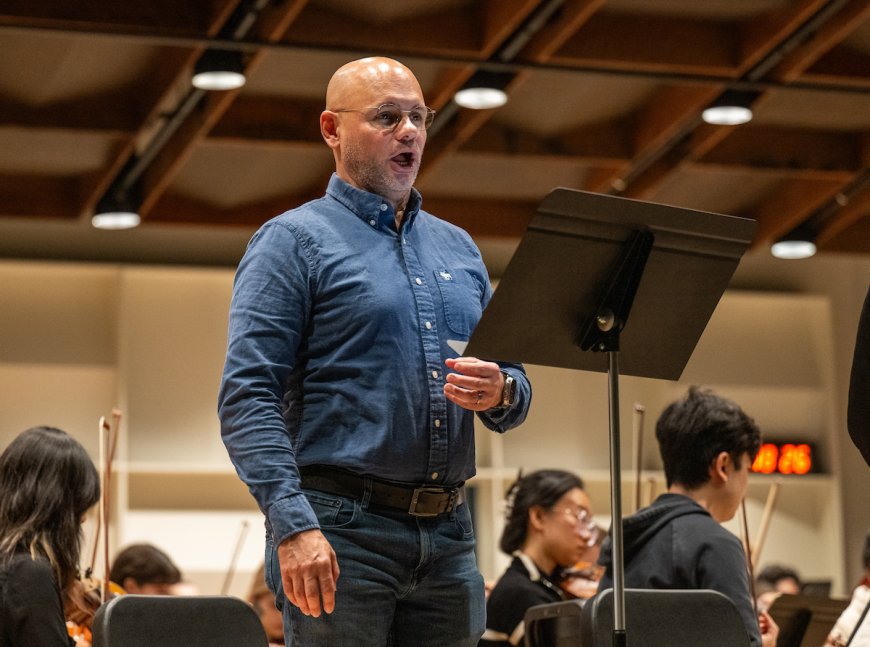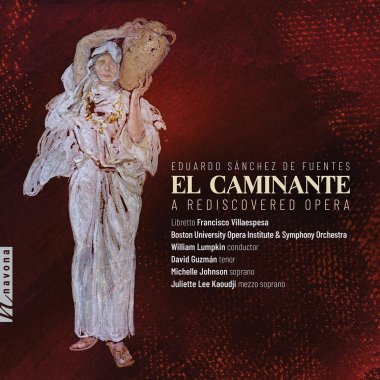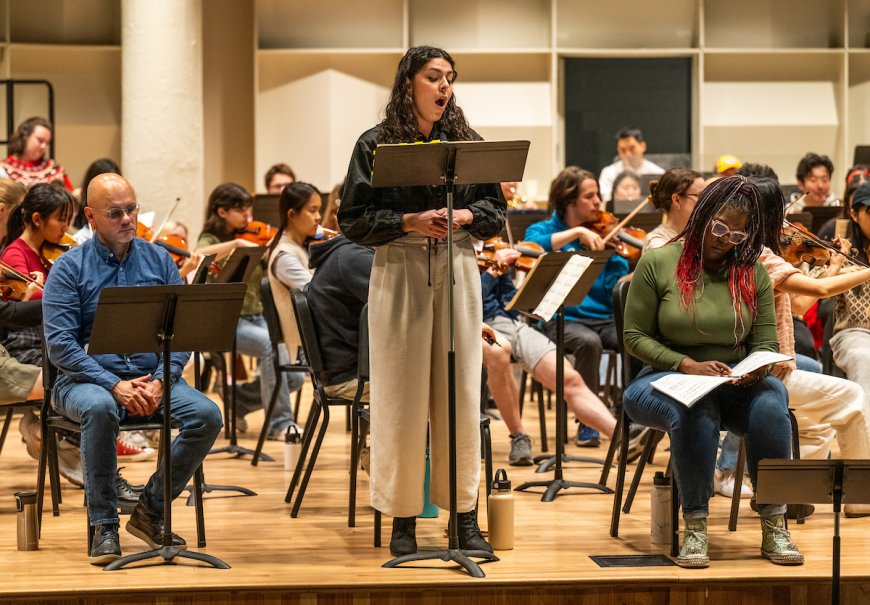
It’s not often that a 20th-century opera can be said to have been rediscovered, but that’s entirely accurate in the case of the new release of Eduardo Sánchez de Fuentes’s one-act El Caminante (The wanderer) on Navona Records. The Cuban composer’s Spanish-language opera was set to premiere at the Teatro Real in Madrid in 1919, but the performances were canceled after the composer fell ill. El Caminante eventually debuted in 1921 in Havana, with a revival there in 1927.
The opera was then forgotten for over a century until David Guzmán, an assistant professor of voice at Boston University, unearthed the orchestral score of El Caminante in Havana in 2023 after finding the matching piano-vocal score in Harvard University’s archives three years prior. Navona’s release captures the Boston University Opera Institute and Symphony Orchestra performing El Caminante in November 2024.

Guzmán’s liner notes opine that the opera might have become “one of the most significant operas of the 20th century,” but the work on this recording registers chiefly as representative of Latin American opera of its time rather than as a lost masterpiece. El Caminante’s music is best described as amiable, charming, and well-written for the voice. One’s first impression is that it is somewhere between operetta and sophisticated lounge music, with a Cuban flavor. Francisco Villaespesa’s libretto is an uneasy mix of romance and religious fervor, blending sexual attraction with miraculous healing.
Yolanda, age 15, is paralyzed, leading her mother, Ginesa, to search for remedies. Both Catholics, they sing of Jesus, who used to wander about in disguise healing the sick and the dead, and pray that God will heal her.
A handsome young man, El Caminante, then appears, asking for a place to rest. He and Yolanda engage in flirtation, albeit laced with religious references. He calls himself half pilgrim, half troubadour. A passionate duet ends with a kiss. El Caminante leaves, and Yolanda is miraculously healed. “¡Era Él!” she sings: “It was Him,” invoking the Lord.
All of these events take place with little tension or sense of structure in the music. There’s a great deal of scene-setting before El Caminante comes onstage, including an ensemble that foreshadows his appearance, and he’s only present for perhaps 12 minutes of the 45-minute score.

Despite a warm and moving performance from mezzo-soprano Juliette Lee Kaoudj as Ginesa, soprano Michelle Johnson, singing Yolanda, isn’t entirely steady and sounds too mature for a role that might better suit a lighter soprano. There are also difficulties making out the text — David Guzmán, who sings the tenor role of El Caminante, is by far the most comfortable in Spanish. Would that he sounded more like a youthful troubadour — his upper register is rather strained.
Like the vocal writing, the orchestration is charming without any special sparkle, though the occasional flute or celesta enlivens string textures. William Lumpkin conducts sympathetically.




